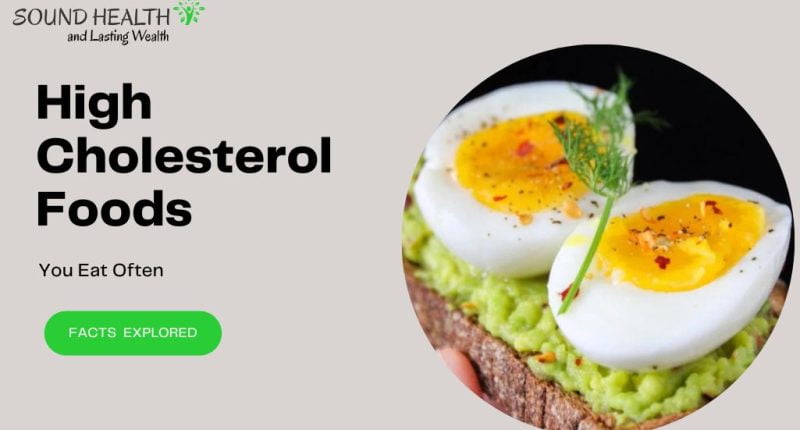8 High Cholesterol Foods in Nigeria – Cholesterol is a fat-like substance found in the body and some foods. While cholesterol is necessary for the body to function properly, high levels of it can lead to health problems such as heart disease and stroke. In Nigeria, some foods are known to be high in cholesterol, and it is important to be aware of these foods to maintain a healthy diet.
What is Cholesterol?
Cholesterol is a waxy, fat-like substance that is present in all cells of the body. The body needs cholesterol to produce hormones, vitamin D, and substances that help digest food. Cholesterol can be produced by the liver or obtained from certain foods.
The Importance of Managing Cholesterol Levels
Managing your cholesterol levels is crucial for your overall health. High levels of cholesterol can lead to a buildup of plaque in your arteries, which can cause them to narrow and harden. This can lead to a heart attack or stroke. Eating a healthy diet and exercising regularly are two ways to help manage your cholesterol levels.
Types of Cholesterol
There are two types of cholesterol: low-density lipoprotein (LDL) cholesterol, also known as “bad” cholesterol, and high-density lipoprotein (HDL) cholesterol, also known as “good” cholesterol. LDL cholesterol can build up in the walls of the arteries, leading to blockages and increasing the risk of heart disease and stroke. HDL cholesterol helps remove LDL cholesterol from the arteries.
8 High Cholesterol Foods in Nigeria
1. Palm Oil
Palm oil is a common cooking oil in Nigeria and is high in saturated fat. It is also high in calories and can contribute to weight gain if consumed in excess.
2. Red Meat
Red meat, such as beef and lamb, is high in saturated fat and can increase your cholesterol levels if consumed in excess. It is essential to limit your intake of red meat and choose leaner cuts when you do consume it.
3. Fried Foods
Fried foods, such as puff-puff, samosas, and plantain chips, are high in fat and calories. Consuming too many fried foods can increase your cholesterol levels and contribute to weight gain.
4. Egg Yolks
Egg yolks are high in cholesterol, and consuming too many can increase your cholesterol levels. If you have high cholesterol, it’s essential to limit your intake of egg yolks.
5. Full-Fat Dairy Products
Full-fat dairy products, such as whole milk, cheese, and butter, are high in saturated fat and can increase your cholesterol levels. Opt for low-fat or non-fat dairy products instead.
6. Shrimp and Shellfish
While seafood is generally considered healthy, shrimp and shellfish are high in cholesterol. Both kinds of seafood are also high in omega-3 fatty acids, which are good for heart health. If you have high cholesterol, it’s essential to limit your intake of these foods.
7. Processed Foods
Processed foods, such as sausage, bacon, and hot dogs, are high in saturated fat and can increase your cholesterol levels. Opt for whole, natural foods instead.
Also read | Carrot Fufu Recipe: How To Make It At Home
8. Baked Goods
Baked goods such as cakes, cookies, and pastries are often made with butter or margarine, which are high in saturated fat and cholesterol.
How to Lower Your Cholesterol
If you have high cholesterol, there are steps you can take to lower it, such as:
- Eating a healthy diet that is low in saturated fat and cholesterol
- Exercising regularly
- Maintaining a healthy weight
- Quitting smoking
- Taking medication as prescribed by your doctor
Conclusion
While many Nigerian dishes are delicious and satisfying, it is important to be aware of the high cholesterol foods that are commonly consumed. By limiting your intake of these foods and making healthy lifestyle choices, you can reduce your risk of heart disease, stroke, and other health problems associated with high cholesterol.
FAQs
A: A healthy cholesterol level is less than 200 milligrams per deciliter (mg/dL).
A: It is recommended to get your cholesterol checked every 4-6 years for adults over the age of 20.
A: Yes, foods such as oatmeal, nuts, and fatty fish can help lower cholesterol levels.
A: Yes, high cholesterol can be inherited from family members.
A: Yes, cholesterol levels that are too low can also lead to health problems such as an increased risk of depression and anxiety.










